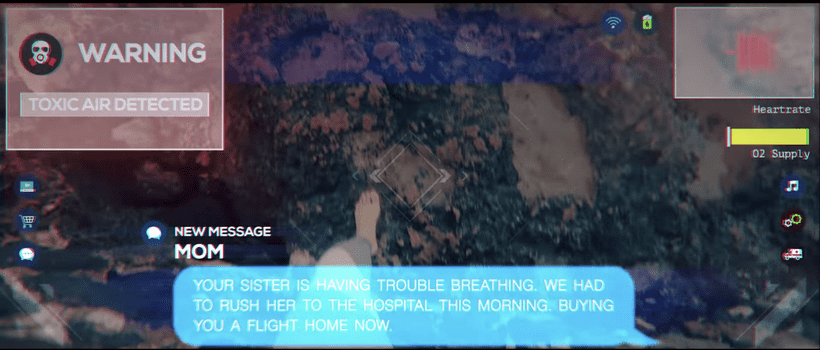The video above kept showing up in my feed for almost a week, sitting there, always in the recommended videos. But it was long, 50 minutes is a lot of dedication. I just ignored it, “I’ll do it later”.
And then the weekend came, I wanted to spend time writing, but it was hard to start. As a sane human being, I did what every one of us would do and went on YouTube to watch “just one video before starting, for real”. And there it was again, staring and inviting me to watch it.
And finally, I pressed play, thinking that at least this is an educational video and the time would be well spent. Little did I know what I am going to find out.
While watching the short documentary, I was going through a lot of different emotional states. Terrified, hopeful, shocked, sad and guilty were just some of the feelings I had.
Why should you care?
Approximately 70% of our oxygen comes from the coral reefs and they are in danger all around the world. Looking from the surface, there is no problem, as everything looks normal. The problem arises when we start looking beneath our oceans and realize that the reefs are dying, thanks to our lifestyle of polluting the environment.

The video starts off with a futuristic scene from 2050, where the actor has to wear an oxygen mask to breath outside, people are surfing in chemical protective clothing and a reporter announcing the death of the coral reef. It looks scary AF… But as things look as of now, there is a big chance that in 2050 that will be the reality.
I hope I made you curious enough to sit down and watch the video. I don’t want to spoil the content, as you will get a much better understanding of the problem by seeing it for yourself.
What can you do now to #SaveTheReef?
Education is the key to turn things around and we all can be part of the solution. Here are the 4 takeaways you can start doing today, taken out straight from the video.
Reduce the use of oil, fossil fuels, and coal
The use of oil, fossil fuels, and coal all contribute to increasing our planet’s temperature which has catastrophic consequences for our environment.
The earth has already warmed 1 degree of Celsius since the 19th century. If the earth warms half a degree more it may mean the difference between a world with coral reefs or a world without.
Instead, we must look for clean and renewable energy. Solar, wind, and electric vehicles. Use more ridesharing as much as possible, start walking more or riding a bike.
Anything we can do to reduce our dependence on the stuff which is killing our planet.
Stop using harmful chemicals for spraying your lawns and vegetation
Virtually all rural areas near the coast runoff water are polluted with pesticides. Runoff goes directly to our oceans, in turn killing our marine life and coral reefs. It’s been found that these chemicals affect all life history stages of corals, so we must stop this as soon as possible. Please stop spraying your lawns and vegetation with harmful chemicals. Use natural herbicide instead or just don’t spray at all.
Use reef-safe sunscreen
Scientists have found that an estimated 14000 tons of sunscreen are deposited into our oceans and reefs every year. Oxybenzone and octinoxate are the most popular chemicals found in non-reefsafe sunscreens. Read and look at the label carefully before you buy sunscreen. Make sure it says reef safe.
Say no to plastic
381 million of plastic was produced in 2017. And yet, only 9% of all the world’s plastic has ever been recycled.
1 million of marine animals are killed annually due to entanglement. Reports are now saying that 70% of all fish has ingested plastic. We’re slowly poisoning ourselves and our future.
Challenge yourself and others to reduce plastic and you might be surprised by how many alternatives already exist. For example, when shopping, bring your own reusable bags, don’t use plastic bags for fruits or vegetables or plastic bottles for drinking. Drink from reusable canisters. Encourage your local store to stop using so much plastic and tell your local restaurants to switch to biodegradable material.
Donate to organizations
Check out some of the charities and donate some money. There is no such thing as a small amount, every cent counts. These do an incredible amount of work fighting climate change and preserving our environment.
Personally, I choose Oceana, as part of my upcoming fundraiser campaign for my birthday on July 5th and I will continue donating to it on a monthly basis.
Share the video
We need to raise awareness about this crisis. Let’s use social media and spread the word, so more and more people will find out the truth about our reefs and start to change their lifestyles.